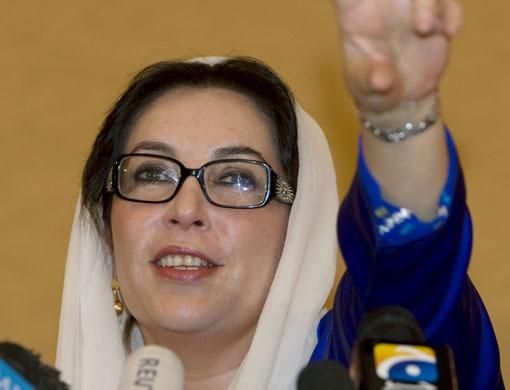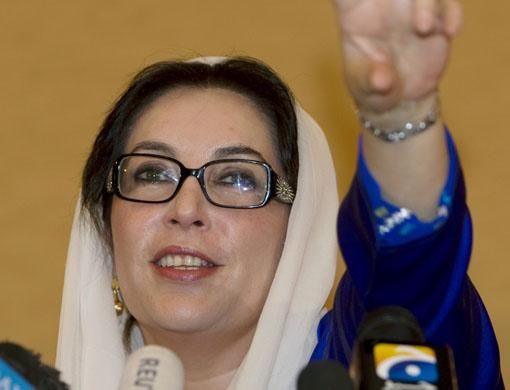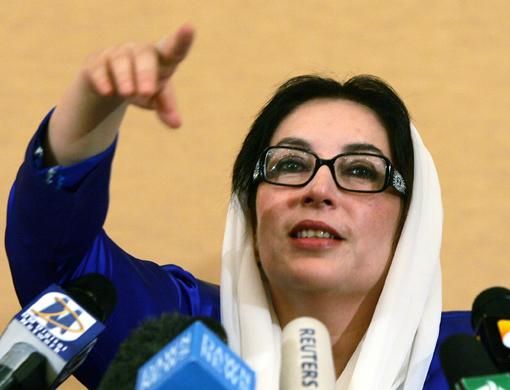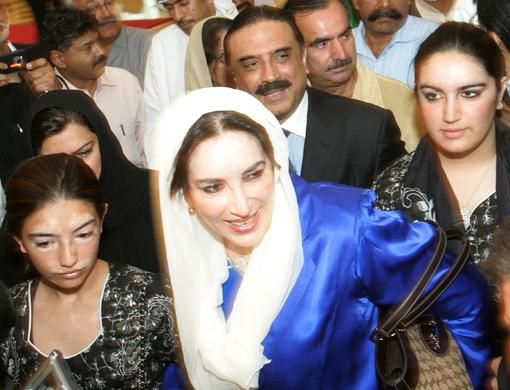Dubai: Former prime minister Benazir Bhutto said she would return to Pakistan on Thursday to end eight years of self-exile and lead her party into national elections despite threats of al Qaeda suicide attacks.
"Tomorrow at this time we will be on board the plane for Karachi, which is a day that I and all the people in Pakistan who love democracy and who believe in fundamental human rights have been waiting for," Bhutto said in Dubai on Wednesday.
Pakistan's biggest city was gearing up for her arrival.
Billboards bearing iconic images of Bhutto smiling beneath a trademark white scarf loomed over downtown Karachi, while youths on motorcycles zipped through suburbs with PPP pennants aloft.
Leaders of her Pakistan People's Party (PPP) predicted that a million people will turn out to greet her, as supporters bearing red, black and green PPP banners streamed into Karachi from villages in the flat, arid hinterland of Sindh province.
Despite being out of power since 1996, the charismatic Bhutto, 54, remains one of the most recognisable women politicians in the world, having been prime minister twice and the first female leader of a Muslim nation.
The United States is believed to have quietly encouraged an alliance between President Pervez Musharraf and Bhutto to keep nuclear-armed Pakistan's government moderate and pro-Western.
But, the timing of Bhutto's return is awkward for General Musharraf, who sees her as both a rival and potential ally after a general election due in early January.
Bhutto has ignored Musharraf's requests to delay her return, yet on Wednesday she spoke of the need for them to overcome differences in order to work together to fight militancy.
"I think both the sides recognise that it's the future of Pakistan that is at stake," Bhutto told a news conference, flanked by her two daughters and her husband, Asif Zardari.
Bhutto said she had received threats from Pakistani and Arab militants, and warned that any suicide bomber who attacked a woman would "burn in hell" as the act violated Islamic law.















